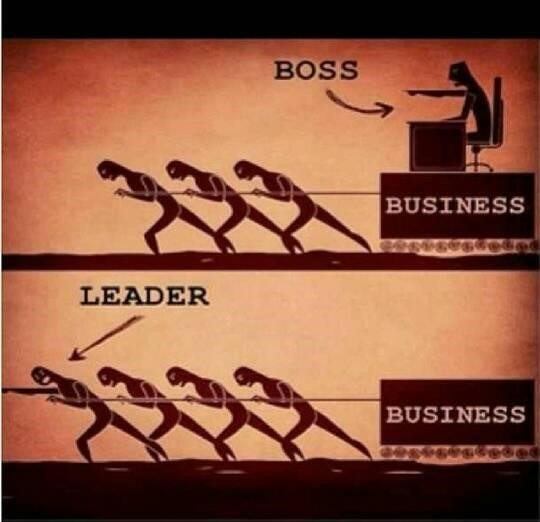At FocusU, we work with leaders across industries and levels – from first-time managers to CXOs. And if there’s one truth we keep encountering, it’s this: leadership is hard. Not because it demands perfection, but because it demands presence, self-awareness, resilience, and above all, a deep commitment to others.
The misconception that leadership is a reward for individual performance is widespread. Many organizations promote top performers into leadership roles, assuming excellence in execution will translate into effectiveness in leading others. But in our experience, that transition is often the most underestimated shift in a professional’s journey.
Leadership isn’t about doing more. It’s about thinking differently.
In this post, we reflect on some of the most common leadership challenges we’ve noticed, and how to navigate them. These aren’t textbook theories, but real insights gathered from our facilitators, coaches, and the thousands of professionals we’ve worked with.
Related Reading: 4 Common Leadership Mistakes
1. The Credibility Conundrum
Table of Contents
Stephen Covey famously spoke of the “emotional bank account.” In our experience, leaders also carry a credibility bank balance. Every time you follow through on your word, you make a deposit. Every time you fall short, you make a withdrawal.
Unlike other roles, leadership leaves little room for excuses. People aren’t just listening to what you say, they’re watching what you do. That consistency (or lack of it) is the foundation of your credibility.
Credibility isn’t built in a day. But it can be lost in one.
2. Leadership Starts With Self-Awareness
Before we tell our teams what we believe in, we need to ask: Do I know what I believe in?
In our work with senior leaders, we’ve seen how transformative it can be when they pause to reflect on:
- What values define me?
- What am I willing to stand for – even when it’s hard?
- What does “success” really mean to me as a leader?
Leadership begins when you move from autopilot to intentionality. And that begins with introspection.
If you’re uncomfortable with self-reflection, leadership will feel like wearing borrowed clothes. The fit won’t feel right and neither will the results.
Related Reading: A Beginners Guide To Leadership Development : 10 Things You Need To Know
3. The Myth of One-Size-Fits-All
One of the earliest (and toughest) lessons many new leaders face is this: what motivates one person may demotivate another.
In our experience, great leaders become great observers. They:
- Listen more than they speak
- Notice individual learning styles
- Understand personal motivators
This means adapting your leadership approach to match the person, not expecting people to adapt to your style.
True leadership isn’t about finding a perfect template. It’s about creating authentic connections.
Related Reading: 7 Distinct Leadership Styles
4. Leadership Isn’t a Popularity Contest
We often remind new managers in our programs: you’re not here to be liked, but to be respected.
That requires tough conversations, setting boundaries, and holding people accountable – even when it’s uncomfortable. The courage to challenge assumptions, give direct feedback, and speak hard truths (with empathy) is part of the job description.
The trick is to choose your battles wisely. In our experience, incremental nudges work far better than sweeping mandates.
Related Reading: Book Review : Radical Candour by Kim Scott
5. Delegation Is Not Optional
Coming from a place of high performance, many leaders struggle to let go. They carry the belief that “I can do this faster and better myself.”
That may be true in the short term. But in the long run, it leads to burnout, bottlenecks, and a disengaged team.
Delegation isn’t about relinquishing control. It’s about distributing ownership.
When leaders delegate with trust, they:
- Empower people to take initiative
- Free themselves up for strategic thinking
- Signal belief in their team’s potential
Yes, it’s a risk. But in our experience, it’s a risk worth taking; because it builds capability and culture.
Related Reading: Why Trust Matters?
6. People Don’t Follow Knowledge. They Follow Care.
Theodore Roosevelt nailed it: “People don’t care how much you know until they know how much you care.”
In our facilitation rooms, we see it over and over. Leaders who truly care:
- Know their team members’ strengths and struggles
- Make space for real conversations
- Acknowledge effort, not just outcomes
This isn’t about performative empathy. It’s about genuine connection. Leadership is personal before it is positional.
Related Reading: Book Learning : Care To Dare
7. Leadership Is Lonely (Sometimes)
One aspect rarely spoken about is the loneliness of leadership. You may have fewer people to confide in, more eyes on your every move, and a constant pressure to stay composed.
That’s why building peer networks, having mentors, or investing in coaching is vital. Leadership should not mean isolation.
In our programs, we encourage leaders to build “anchor relationships” – people they can be vulnerable with, outside of their reporting lines.
The Takeaway: It’s Not About Perfection. It’s About Practice.
Leadership is hard. And that’s exactly what makes it meaningful.
It asks us to:
- Know ourselves better
- Show up with consistency
- Communicate with intention
- Make space for others to shine
At FocusU, we’ve learned that the best leaders aren’t the ones who have all the answers. They’re the ones who are willing to keep learning, keep reflecting, and keep showing up.
So yes, leadership is a challenge. But it’s one worth taking on – with courage, humility, and heart.
Related Reading: 12 Pointers For The Perfect Leadership Development Program










